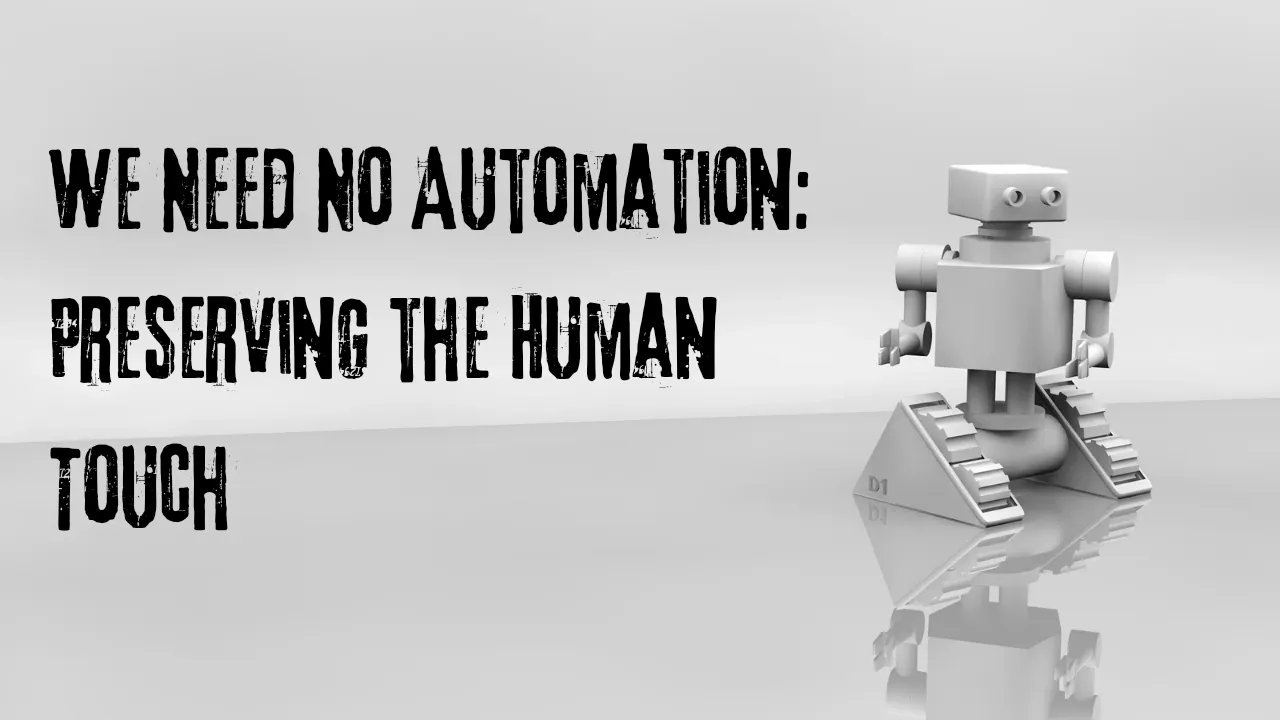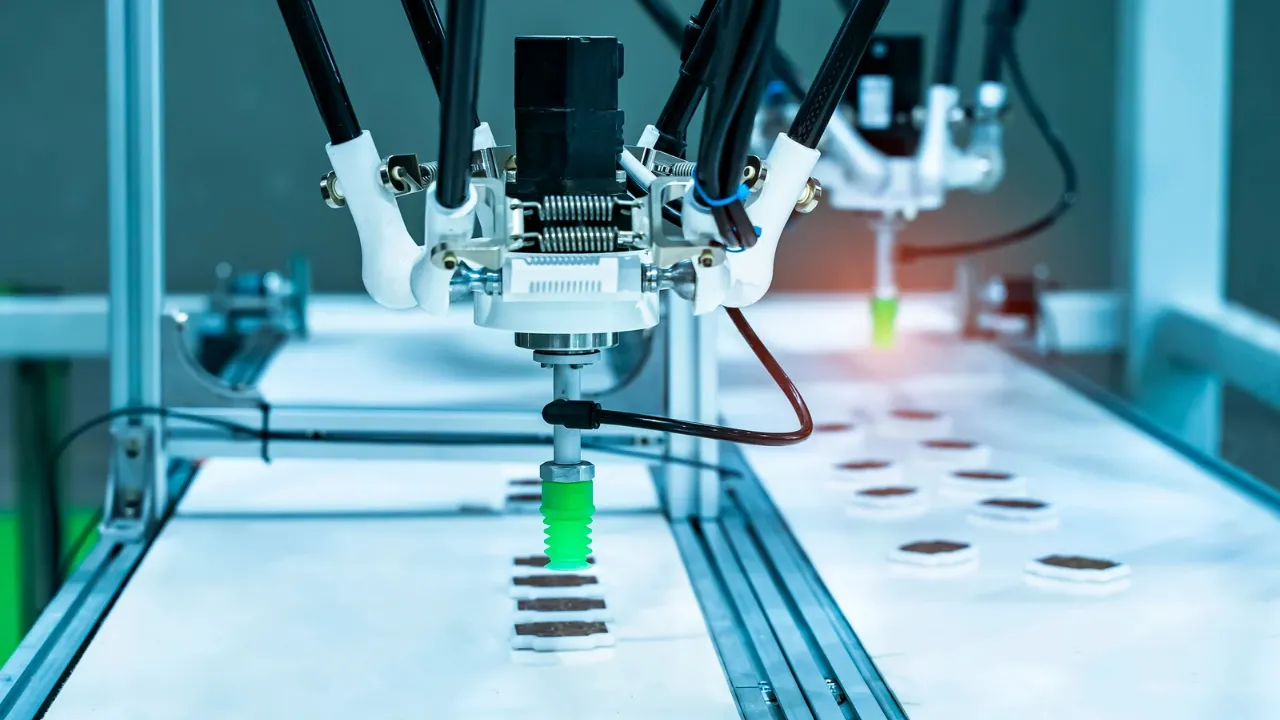We live in a time and age where automation thrives, and the world isn't content yet, as we're driving to a point where everything will literally run on autopilot, from customer relations services to manufacturing and the like. Although it's worth noting that this is good for us humans because it offers consistency, efficiency, and productivity, personally, I don't think it should be implemented in some aspects or professions, especially those related to human touch and connection.

If we look at our world today, we'll notice the numerous automated devices that have improved lives and eased our stress, and that's because they make our work accurate, easy, and fast. For instance, the innovation of the washing machine has relieved humans of the stress of sitting and scrubbing many clothes for hours to get them clean and ready for another day. Now, such machines do the work and give us enough time to relax or invest our time in other things while the machine performs our tasks for us.
That's not forgetting that in aspects such as manufacturing, through the years before the evolution of automation, we've come to see how humans work tirelessly for hours to build cars, planes, houses, and the like, and one thing that's common to those who work in such places is the danger of getting injured or falling ill due to inhaling dangerous and toxic chemicals that went on to jeopardize their health.
And with the evolution of automation, all of those dangers are being gradually eradicated, helping us stay in good condition and health, and that has also spread to other fields and places where such has been implemented, but like I said, it won't be ideal in the aspects I'll talk about below.

Now, when I said human touch and connection aspects, I'm referring to some professions that require not just manpower but deep human connections and understanding that go beyond the coding of programs slated for automobiles.
And professions such as therapists, counselors, and the like would be a disaster if it were to be automated, and my reason for this is because this automation machine runs on code that has already been prewritten in their program, which means it's somewhat limited because some aspects of emotions can't be guessed by autopilot but need human experience to relate with their patients and give the best possible advice.
While machines would try their best in this field, I don't think they should be given that post because I don't think humans would feel as assured by the opinion or advice of a machine as they would by that of a fellow man who knows and understands what it feels to go through pain or mental health issues.

Even as a student, it would be difficult for me to trust and have confidence in myself that I can know sometimes, because I'll always feel like the AI that's teaching me and sounding so knowledgeable can do that because it's a bot that has all those programs in its CPU, but being taught by humans like us would give us some form of belief that if this person can comprehend this, then I also can.
And that's not to forget the empathy we have and share as humans; we'll also tend to understand sarcasm better than a machine that's programmed to give advice or lead based on your words, not knowing we can sometimes be sarcastic when angry, in pain, or when our health is being questioned by our therapist or counselor.

And that's just one aspect. One other very important reason why I believe this aspect shouldn't be automated is because of a fear of security that'll lead to our privacy being open to some people. I know humans can also be interrogated and information can be gotten from therapy, but that's very rare. But in a situation where such an automated counselor bot has a security bridge, everyone's secret and private information that's supposed to be known to their therapist alone would be visible to all, and that's only crumbling the mental health of such patients the more.
It's not like I'm against automation or its implementation; in fact, I'm its biggest fan and use some of its already existing devices in my day-to-day activities. However, we must be able to strike a balance in these aspects between humanity and technology so as not to jeopardize the wellbeing of humans, which will mean it's doing the opposite of what it's built to do. To strike a balance, human therapists can use some automated devices to read beyond the face to know their patience, vitals, contenanace, and the like, and merge that with their own human connection and empathy to better their job delivery.
Thanks so much for your time. I hope you enjoyed the read and see this in the same light as I do. Either way, feel free to leave your opinion in the comments section. Have a blessed and wonderful day ahead.
Thumbnail designed on canva